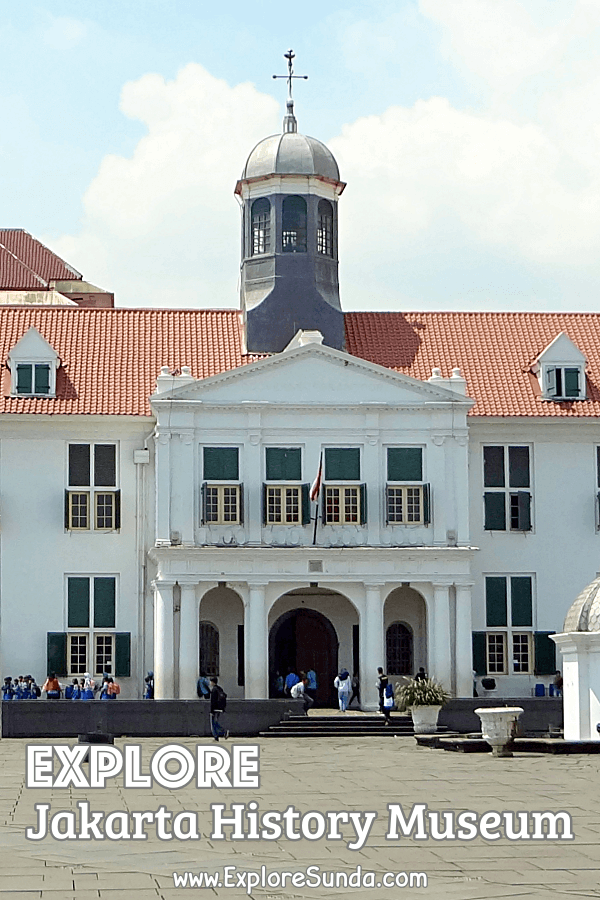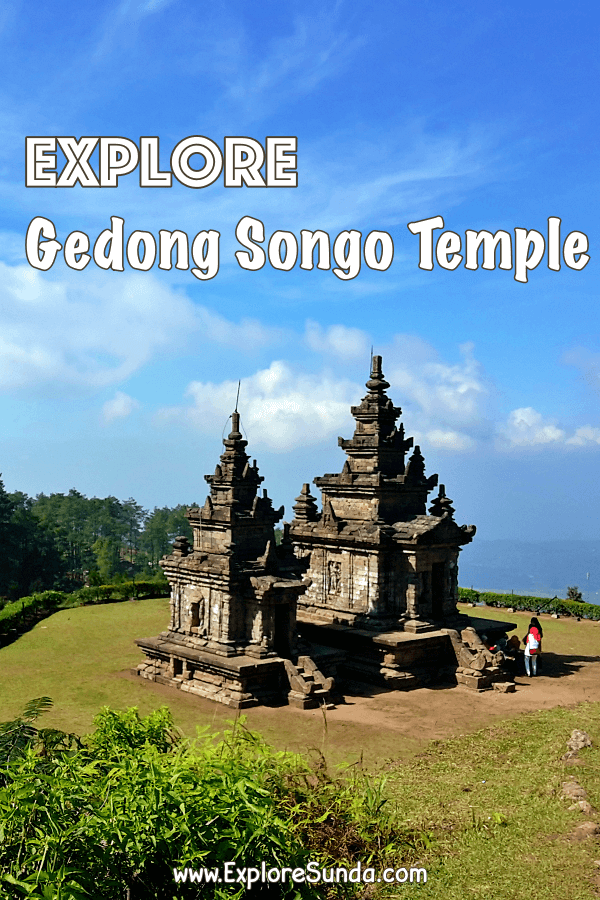- Sunda
- Beyond Sunda
- Ullen Sentalu Museum
Ullen Sentalu Museum
Ullen Sentalu Museum in Kaliurang Yogyakarta is not an ordinary museum. The theme of this museum is the history and cultures of the great kingdoms in Java, especially in Central Java, which was packaged in a modern setting.
Ullen Sentalu is an acronym from a Javanese adage: "ulating blencong sejatining tataraning lumaku," loosely translated as the light as a guidance of life.
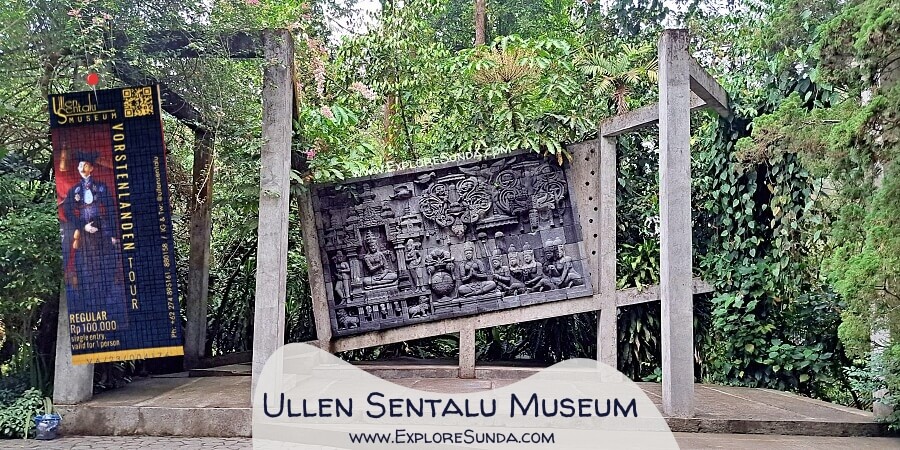 The icon of the Ullen Sentalu Museum in Kaliurang, Yogyakarta.
The icon of the Ullen Sentalu Museum in Kaliurang, Yogyakarta.Unlike other museums where visitors roam freely, Ullen Sentalu only offers guided tours, including English guided tours. But there will be no museum guides because here they are called educators :) Presently, the museum has two guided tours: Adiluhung Mataram and Vorstenlanden; each takes around forty-five minutes. The museum plans to open the third guided tour in late 2023.
Ullen Sentalu Museum nestles in the Kaliurang's hills and forest. Hence, stairs are a common sight here. The ticketing office is located on the same level as the parking lot. Then, you have to go out and walk up a set of stairs to the reception building. Inside is a lobby with floor-to-ceiling windows and waiting areas for the guided tour to start. The tours begin simultaneously, but the groups will walk through different doors. You are not allowed to take pictures and videos during the excursion.
Adiluhung Mataram Tour of Ullen Sentalu Museum
Adiluhung is an Indonesian word for high culture, cultural objects with aesthetic values, as Mataram was once a great kingdom in Java. Consequently, the Adiluhung Mataram Tour introduces the Javanese cultures in the life of the royals of the Mataram kingdom. The educator tells the story by guiding us through two halls – Guwa Sela Giri and Kampung Kambang, where photographs, paintings, poems, and batik are exhibited. They are all the Javanese arts and cultures from four palaces in Yogyakarta and Surakarta: Kraton Kasultanan Yogyakarta, Kasunanan Surakarta, Mangkunegaran, and Pakualaman.
Vorstenlanden Tour of Ullen Sentalu Museum
Vorstenlanden was a Dutch term for the Islamic Mataram kingdom, which means the King's land or territory.
The Vorstenlanden Tour starts by walking through the back door of the lobby to a courtyard called Pelataran Tawang Turgo. Massive stone statues, reliefs, and a small waterfall adorn this courtyard. The educator explained that local children learn traditional Javanese dances and perform in this place. We walked across this courtyard to the backyard, where several independent buildings are connected with stone paths.
Opening Hours:
Tue-Sun: 08.30-16.00
Ticket:
Adiluhung Mataram tour Rp.50,000
Vorstenlanden tour Rp.100,000
English guided tour Rp.100,000
The first place we visited was called Djagad Gallery (Djagad is a Javanese word for the universe). First, we went down steep and narrow stairs into an underground passage. The atmosphere changed instantly from creepy to a wow moment when the educator turned on the light. There lay before us is a modern-day gallery.
We entered a corridor with two framed maps of Java hanging on each side. They were old maps of Java, where you could see the territories of ancient kingdoms. The educator recounted the history of these kingdoms, starting with the glorious days in the Kingdom of Medang, also known as the Ancient Mataram. They built many magnificent temples, such as Borobudur, Prambanan, Sewu, Kalasan, Gedong Songo, and Dieng. Once upon a time, their territory spread beyond the land of Java and reached Cambodia.
Over the years, war and natural disasters destroyed this kingdom. The land was divided into new but smaller kingdoms. Centuries later, it became Vorstenlanden, which comprised four kingdoms: Kraton Kasultanan Yogyakarta, Kasunanan Surakarta, Mangkunegaran, and Pakualaman. They came from one ancestor, so they have some similarities but are different at the same time.
At the end of this story, we moved on to the main room, where portraits of late kings and paintings are on display. Then, we moved to Sasana Sekar Bawana, as she continued to regal the story of the renowned kings and the royal traditions. At one point, she showed us the differences between the royal bride from Kasultanan Yogyakarta and Kasunanan Surakarta. Everything in their bridal costumes, makeup, and accessories symbolized something deep and meaningful.
We proceeded down a lengthy corridor lined with statues on pedestals. Our guide gave us a brief overview of the relics before leading us to the Esther Huis, a quaint dwelling showcasing Indies Cultures – a blend of Javanese, Dutch, and Indonesian Chinese cultures. Inside, we observed batik and kebaya, women's daily costumes worn during that period. However, these patterns and colors were different from those worn by royalty. Interestingly, one could determine a woman's social status by looking at how she wore her batik!
Esther Huis was the last place we visited on the Vorstenlanden Tour. Afterward, we indulged in tea, coffee, and homemade cookies at the Beukenhof Bakkerij. The charming European architecture made the small establishment feel warm and cozy. The cookies were particularly unforgettable, as I had never tasted mouthwatering cookies like them before. Unfortunately, our break was only ten minutes before the next tour swarmed the bakery.
Finally, on the way out, we could take pictures in front of the icon of the Ullen Sentalu Museum. It was a replica of a panel from the Borobudur temple. This heavy relief is displayed on the ground at a slant, representing a concern for the young people's low interest in Javanese arts and cultures.
How to go to Ullen Sentalu Museum
Located at Boyong Kaliurang Street, Ullen Sentalu Museum is approximately 25 km from downtown Yogyakarta. Nestled on the hills and forest of Kaliurang, public transportation doesn't go there. Hence, the easiest way is to drive your car, rent a car, or hail ride-sharing services, such as Gojek and Grab. The GPS coordinates are 7°35'52.2"S 110°25'24.2"E (-7.597840, 110.423390).
- Sunda
- Famous Museums in Indonesia
- Ullen Sentalu Museum
Recent Articles
-
Roro Jonggrang: A Tale Etched in the Stones of Prambanan Temple
Nov 05, 25 11:52 PM
Unravel the ancient Javanese legend of Roro Jonggrang that bridges myth, devotion, and the grandeur of Prambanan. -
Discover the Vibrant Celebration of Imlek in Indonesia!
Jan 13, 25 03:24 AM
The Chinese New Year of 2576 will be celebrated on January 29, 2025. Discover the special things in this Imlek festival! -
The Site Map of ExploreSunda.com
Nov 26, 24 10:40 PM
A thorough site map to help you browse through the Explore Sunda site.
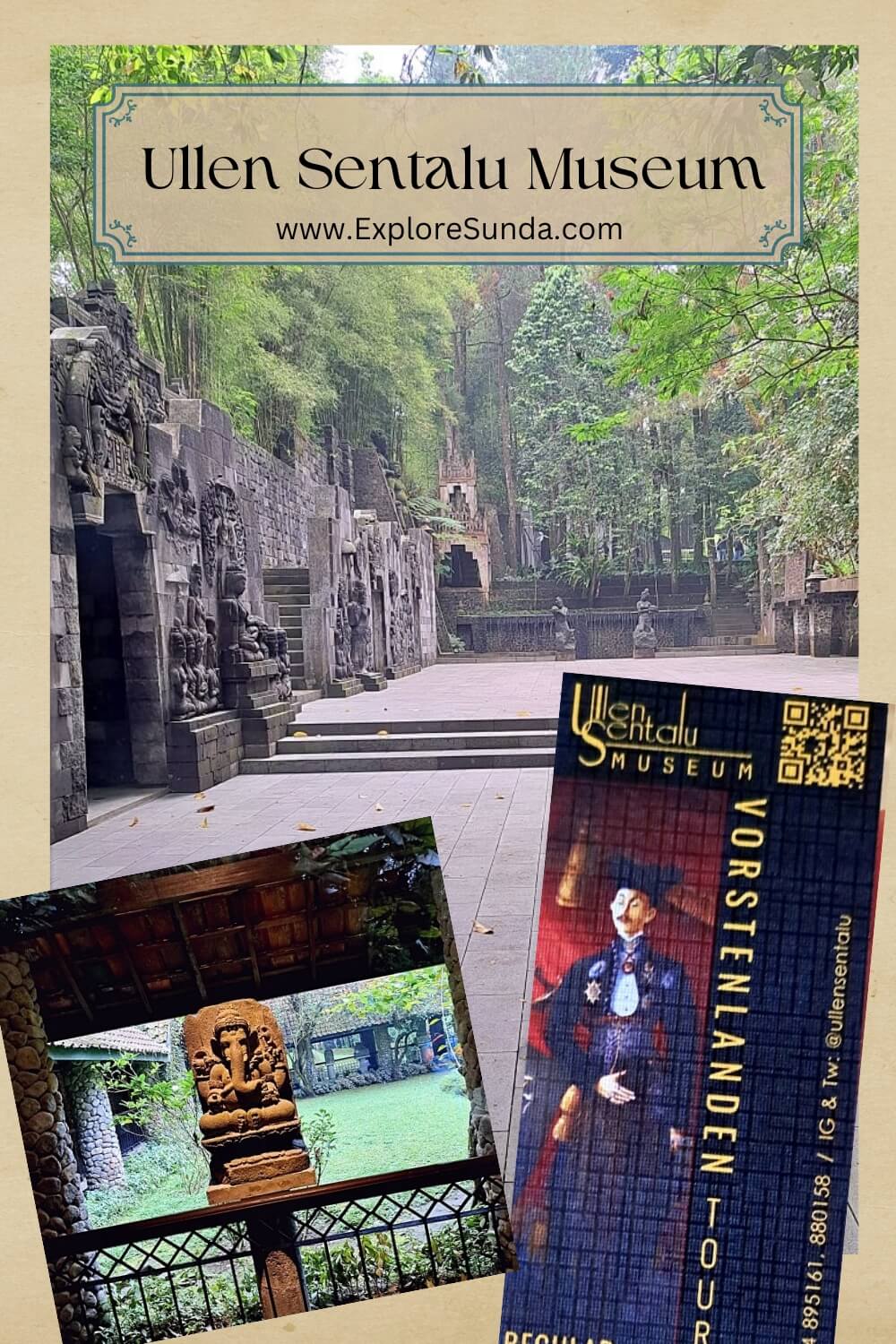
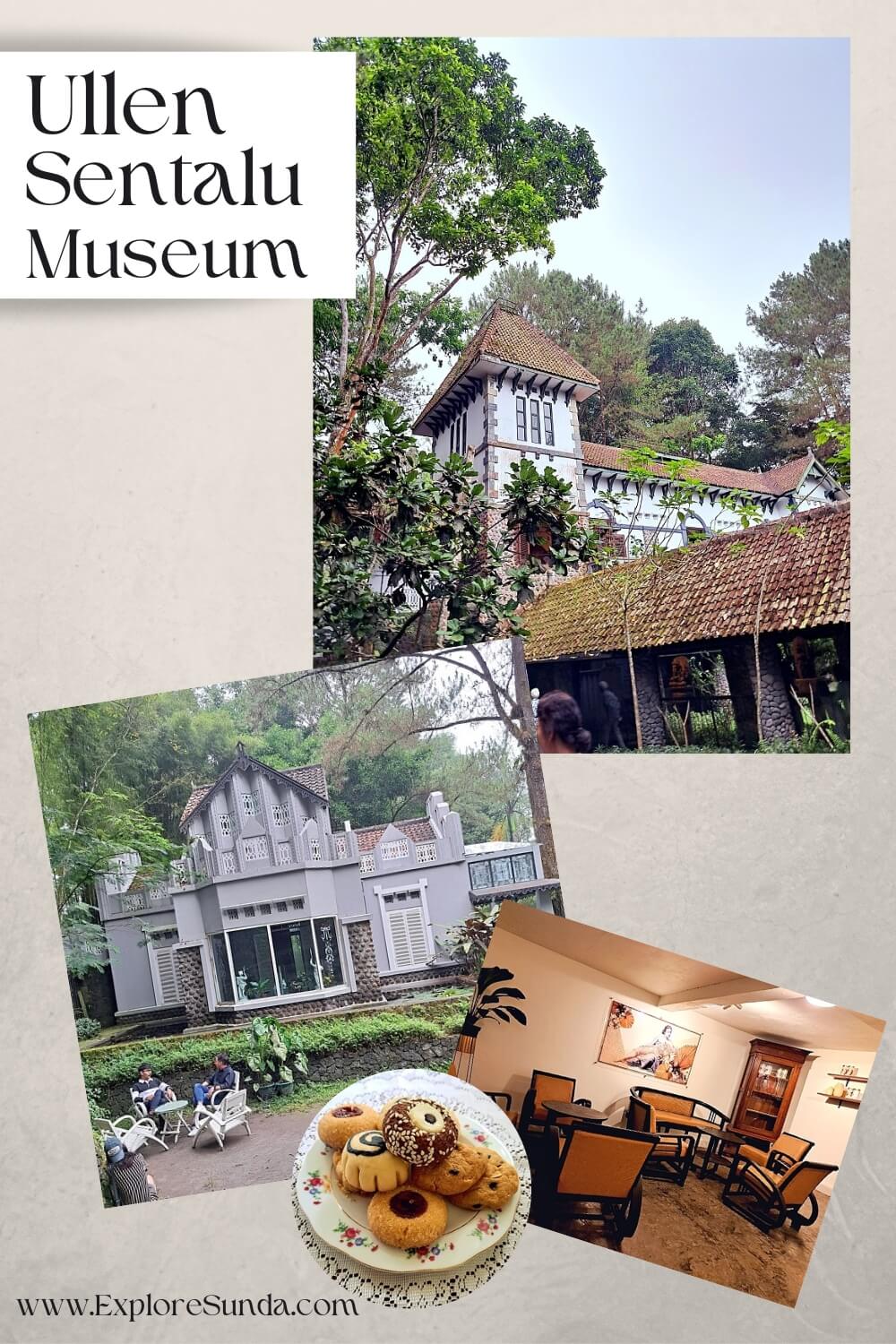
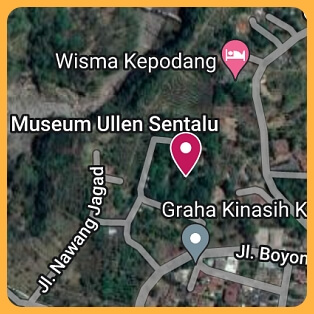

![Explore the 18 museums in Taman Mini Indonesia Indah [TMII], from fauna, cultures to science!](/images/tmii-museum-pinterest.jpg)
